With Sundance now wrapped up, this month we turn our sights on Berlinale and a number of notable releases arriving both theatrically and digitally. From international Oscar contenders to long-delayed releases to musician-focused docs to our favorite group of jackasses, it’s an eclectic month. See our picks below.
15. The Sky Is Everywhere (Josephine Decker; Feb. 11 in theaters and Apple TV+)
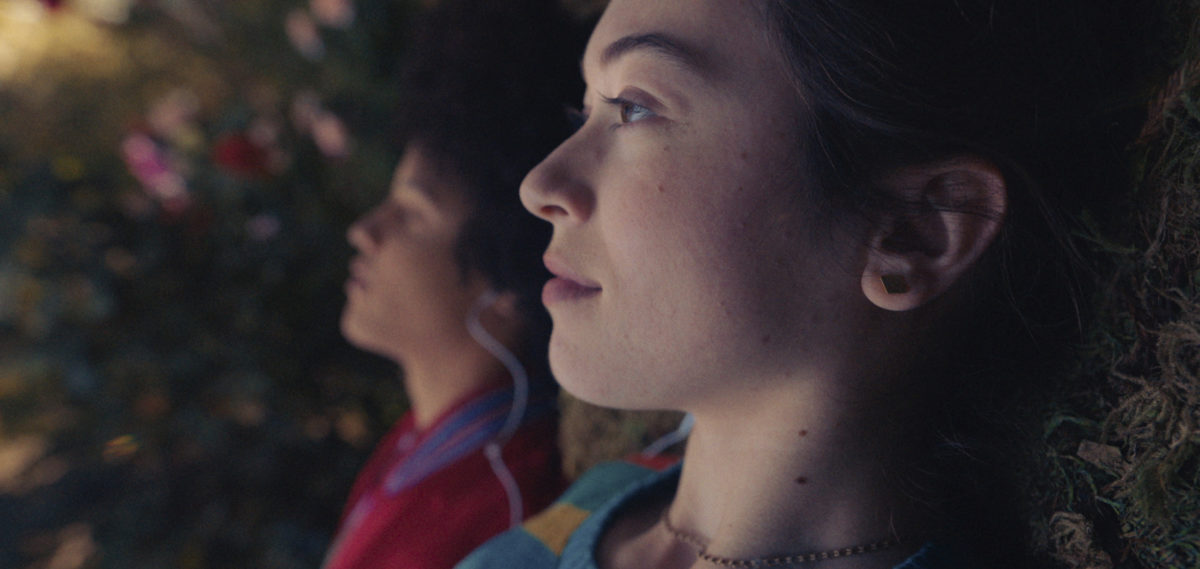
Curiously absent from Sundance and Berlinale is the latest by an alum of both, Josephine Decker. Following Madeline’s Madeline and Shirley, the director is back with The Sky Is Everywhere, which was adapted by Jandy Nelson, based on her novel. Produced by A24 and Apple, it follows a high-schooler who loses her older sister and attempts to regain her footing in life. With the YA material, it looks like Decker is carving a new path; we’re curious to see the results.
14. Taste (Lê Bảo; Feb. 16 on MUBI)
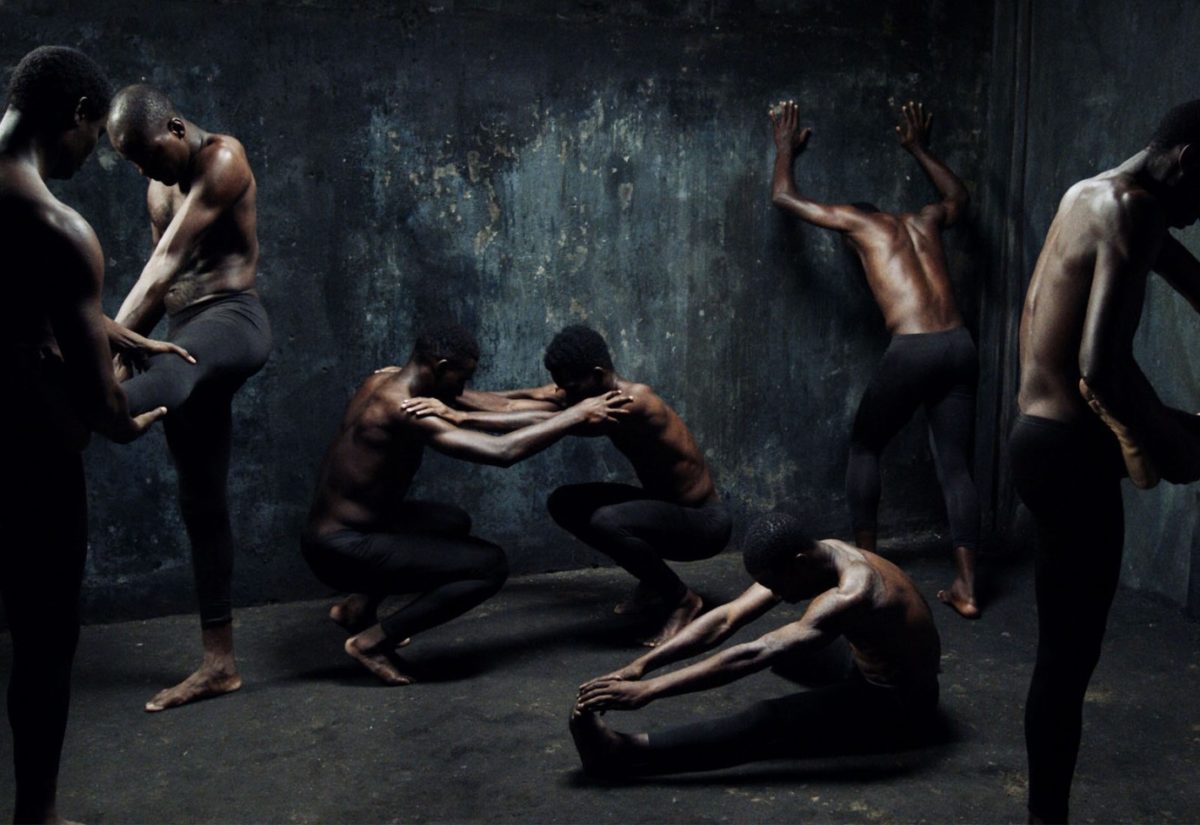
One of the best films we saw at Berlinale last year will arrive this month via MUBI. As Leonardo Goi said in his review, “Lê Bảo’s Taste is set in Saigon, but for the best part of its 97 minutes, all action is confined to a bunker-like abode where five people meet and hide. The place is dark, unfurnished, and dank; so spectral in its emptiness you’d wonder if the quiet tenants are alive or ghosts. In the stunning chiaroscuro of their unlikely home all motion slows into choreography, characters freeze in a state of protracted wait, and there seems to be only a very blurred distinction between the dreaming and the dead.”
13. Playground (Laura Wandel; Feb. 11 in theaters)
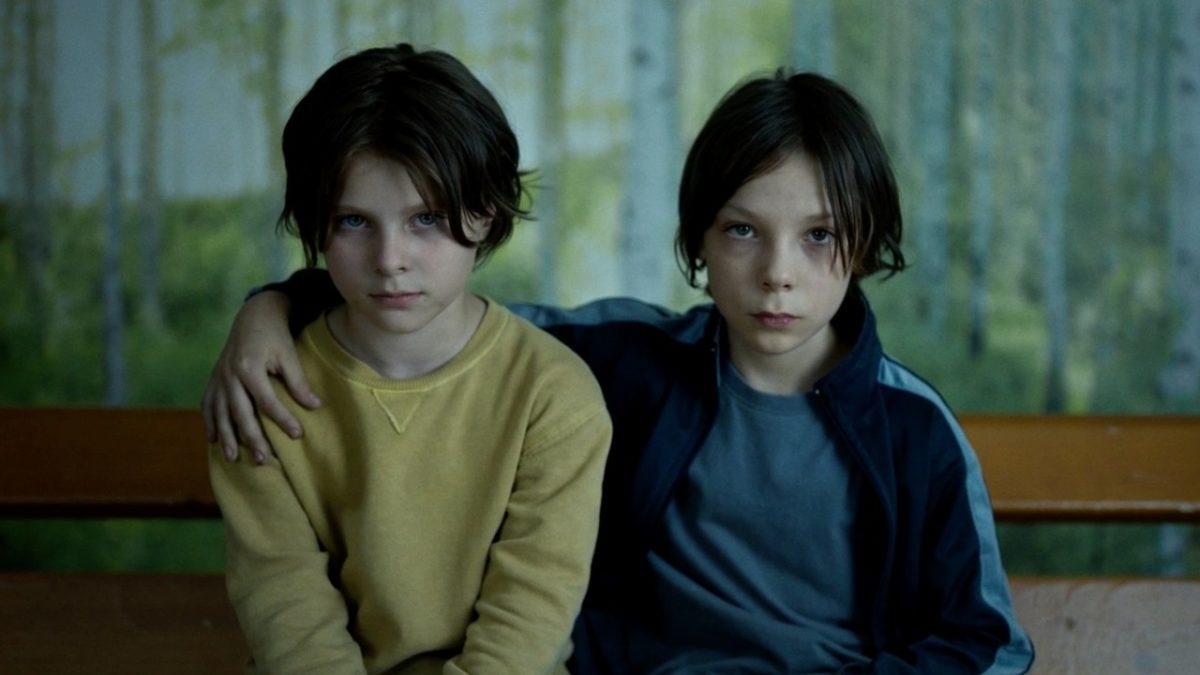
One of the shortlisted Oscar contenders for Best International Feature Film, hailing from Belgium, Laura Wandel’s feature debut Playground will get a theatrical run this month. Exploring bullying at school, the film follows a 7-year-old who witnesses the torment her older brother goes through. Clocking at just 72 minutes, the acclaimed drama looks to be an intense view of childhood trauma.
12. Mr. Bachmann and His Class (Maria Speth; Feb. 20 on MUBI)
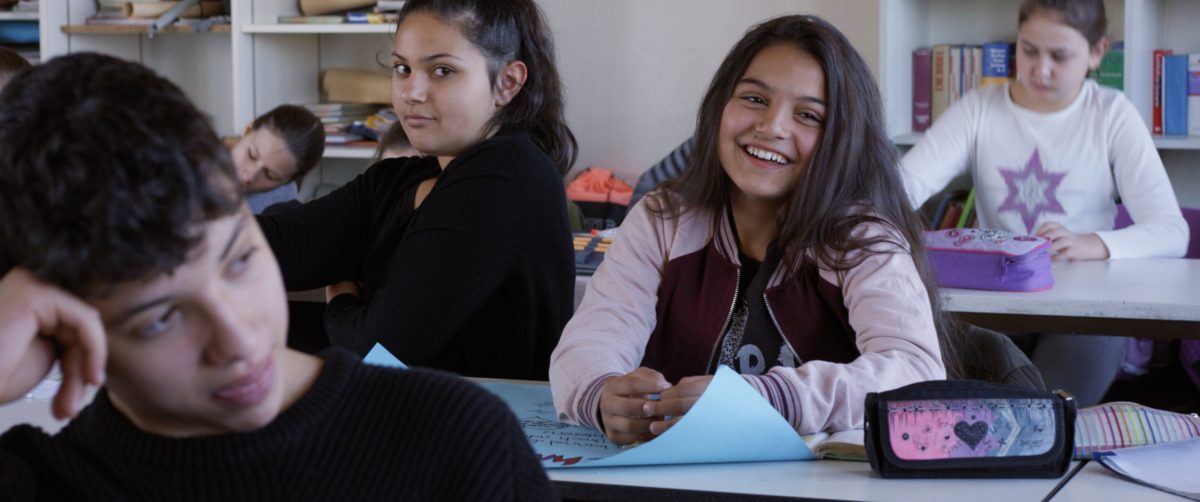
Winner of the audience awards and Silver Bear at last year’s Berlinale, Maria Speth’s documentary Mr. Bachmann and His Class finally makes its way to the U.S. courtesy MUBI. Per Rory O’Connor’s Berlinale review, “Near the beginning of the new documentary Mr. Bachmann and His Class, the eponymous school teacher finishes another day of work, gets in his car, and drives home. It’s early evening on a snowy winter’s day, and as the sun falls over the horizon his car slips down through an underpass as if it were traversing a portal, or leaving a fairytale. We are never shown much of Bachmann’s life, or much else for that matter, outside of the Georg-Büchner-Gesamtschule in the small industrial town of Stadtallendorf. Indeed, for most intents and purposes in Maria Speth’s patiently observed and deeply heartfelt film, Bachmann is the Georg-Büchner-Gesamtschule. In one of the rare moments we glimpse outside the classroom a colleague frankly admits, ‘I could never replace you.’ We are inclined to agree.”
11. Poly Styrene: I Am a Cliché (Celeste Bell & Paul Sng; Feb. 2 in theaters and Feb. 4 on VOD)

After a banner year for music docs in 2021, 2022 seems to continue the trend by kicking off with a look at a punk icon. Christopher Schobert said in his review, “For a young teenager steeped in grunge, Britpop, and the Beatles, the discovery of 1970s UK punk rock was tantamount to a swift slap in the face—and a glorious one, at that. And one of the crucial pieces of pre-internet background information was England’s Dreaming, Jon Savage’s indispensable study of the era. The book is full of memorable figures—none more so than Poly Styrene. She is only a minor player in Savage’s text, but few resonate more. The author explains that “Poly was a star, with her dayglo clothes, multi-racial background, teeth braces, and surreal songs which wittily commented on that very process of consumption and packaging that she was at once celebrating and transcending.” All of these elements and many others are represented in the long-in-the-works documentary Poly Styrene: I Am a Cliché.”
10. Air Doll (Hirokazu Kore-eda; Feb. 4 in theaters and on VOD)
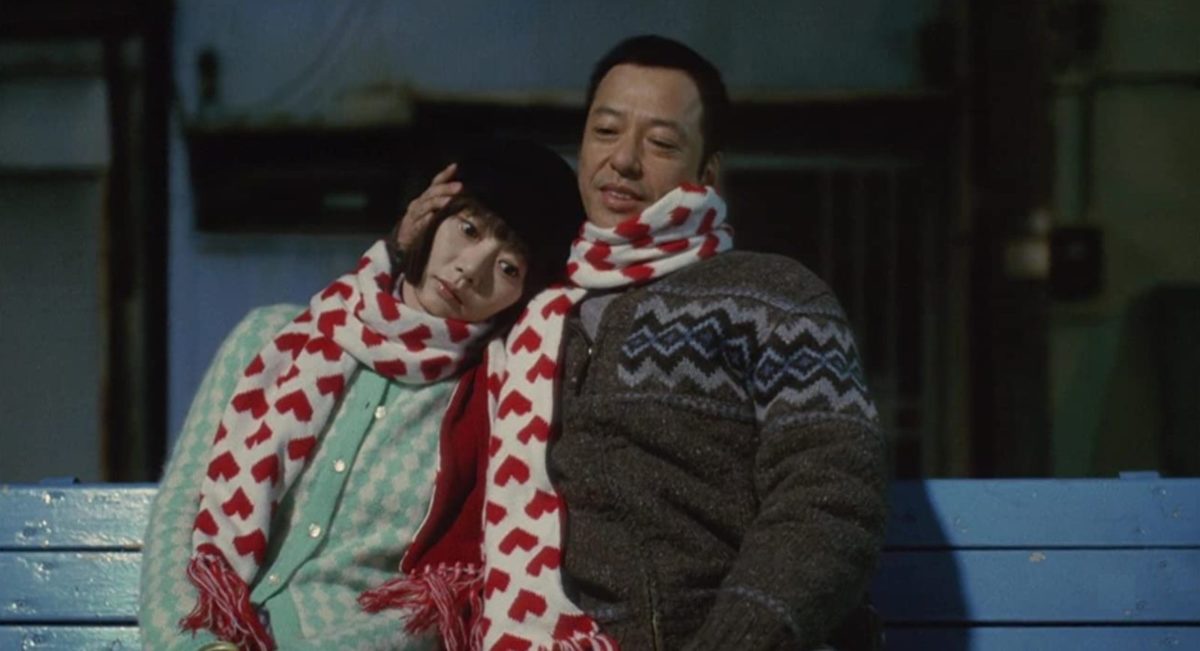
13 years after its initial international premiere, Hirokazu Kore-eda’s Air Doll is finally getting a U.S. release courtesy of Dekanalog. In the film, shot by Hou Hsiao-hsien’s regular cinematographer Mark Lee Ping-Bing (also of In the Mood for Love), the Galatea myth is transported to present-day Tokyo, when an inflatable sex doll named Nozomi (Doona) finds she has grown consciousness and a heart. She begins to wander the city in quiet awe and fascination and, taking on a new life of her own, discovers the innate complexities of being human, including the heartbreak of loneliness.
9. Lingui, the Sacred Bonds (Mahamat-Saleh Haroun; Feb. 4 in theaters)
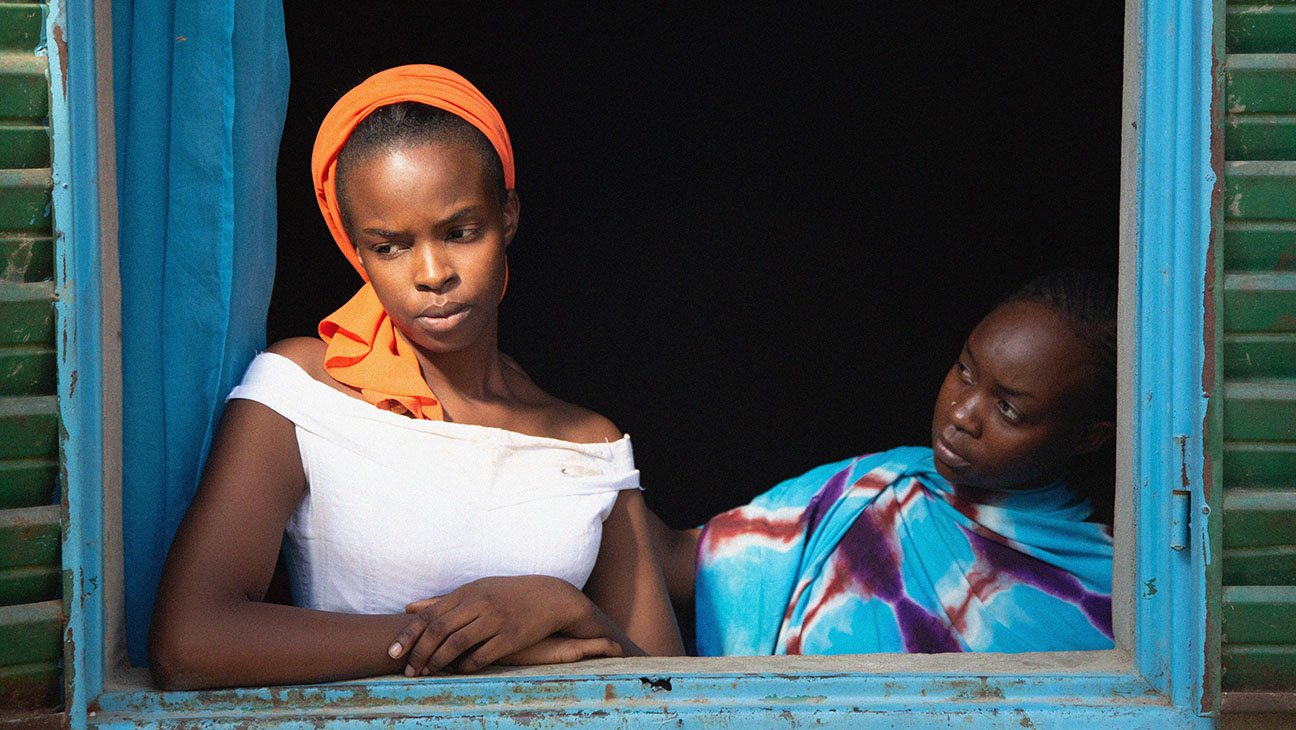
Mahamat-Saleh Haroun’s latest work, the abortion drama Lingui, never hits a false note as it navigates a young woman’s struggle in a society that has shunned her. As David Katz said in his Cannes review, “In Chad, whose two main languages are Arabic and French, “lingui” is a distinct term meaning a “bond or connection”; the film’s alternate title gives it a more pious hue—the “sacred bonds.” But what’s fascinating and most novel about African cinema great Mahamat-Saleh Haroun’s new drama is the lack of an overtly religiose aura: the bonds created by its generation-spanning units of women are uplifting and resilient, while sought independently from Chad’s ruling, patriarchal class. To compare with conditions in the West, an analog would be to radical women’s networks, or even experiments in collective living and solidarity like communes.”
8. Strawberry Mansion (Albert Birney and Kentucker Audley; Feb. 18 in theaters and Feb. 25 on VOD)
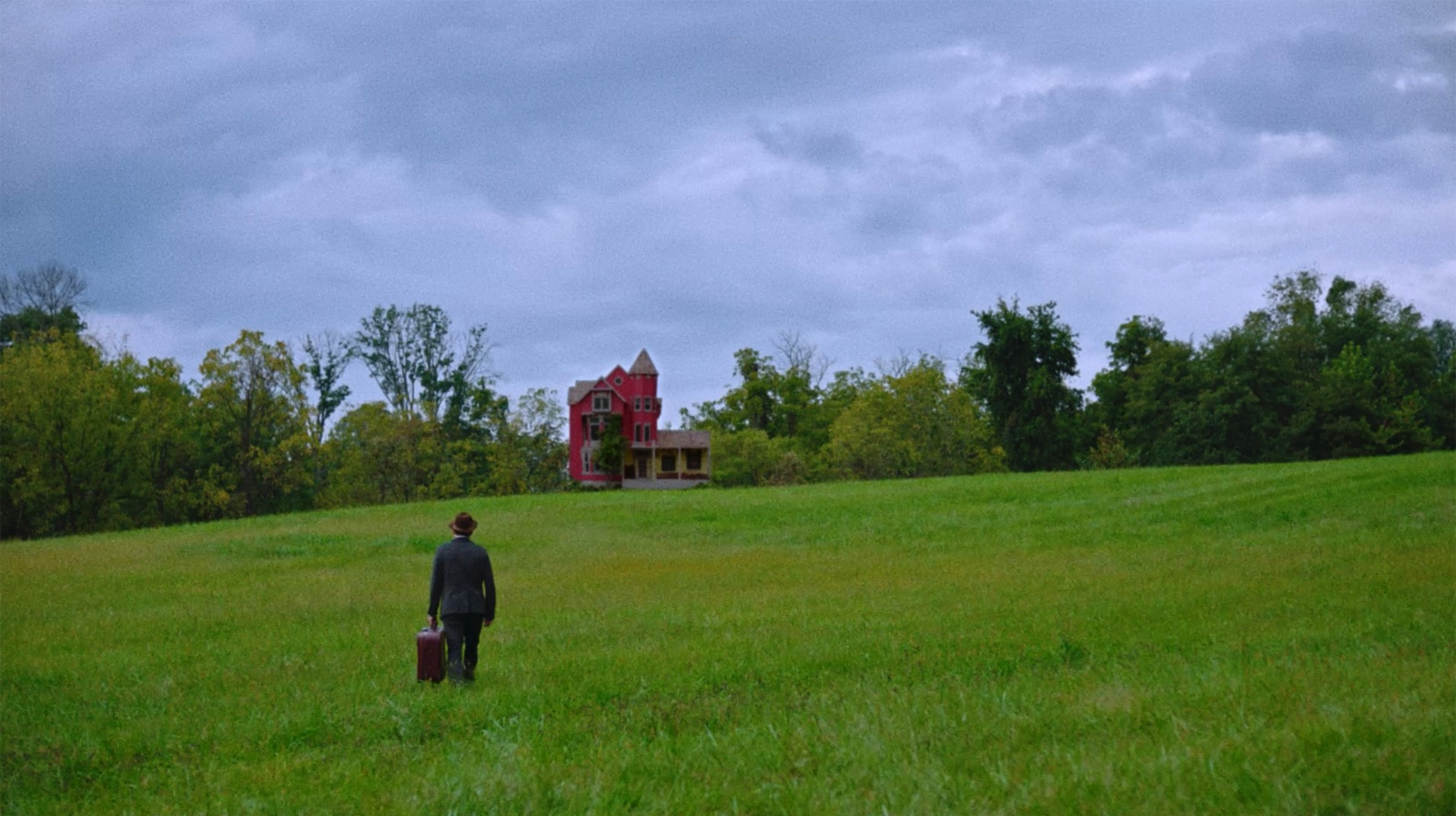
What if the government didn’t only tax your paychecks and transactions, but your dreams as well? With their vibrant, imaginative, genre-melding Strawberry Mansion, directors Albert Birney and Kentucker Audley envision this reality in the near-future of 2035. But with their clear admiration for analog technology it could just as well take place in an alternate timeline recalling decades past. Following a dream auditor named James Preble (Audley) who ventures to a remote farmhouse for his latest assignment, he’s tasked with auditing the dreams of the eccentric, elderly Bella (Penny Fuller), who has failed to file hers for decades. Fondly recalling Michel Gondry’s The Science of Sleep as reality and dreams start to meld, the film is equal parts lovely and frightening as it explores romantic bliss, destructive capitalism, and the significance of the subconscious state we all spend a third of our lives experiencing. Continue reading my review.
7. Kimi (Steven Soderbergh; Feb. 10 on HBO Max)

We’re just a week away from a new Steven Soderbergh film. And while its exclusive HBO Max release means the marketing is fairly quiet thus far, it’s certainly the Zoë Kravitz-starrer we’re most excited for this season. After providing no shortage of personality to the crime drama with last year’s No Sudden Move, the director stays in genre territory here, following an agoraphobic Seattle tech worker who uncovers evidence of a crime.
6. A Knight of Knowing Nothing (Payal Kapadia; Feb. 11 in theaters)

A selection at Cannes, TIFF, NYFF, Busan, IDFA, DOC NYC, and many more, Payal Kapadia’s directorial debut A Night of Knowing Nothing is one of my early favorites of this year. A poignant mix of fiction and documentary, with a remarkable, dreamlike sense of time, the film imagines love letters uncovered at the Film and Television Institute of India, but soon evolves into a look at protest and the value of education without ever abandoning its hypnotic formal approach.
5. Fabian: Going to the Dogs (Dominik Graf; Feb. 11 in theaters and Virtual Cinemas)
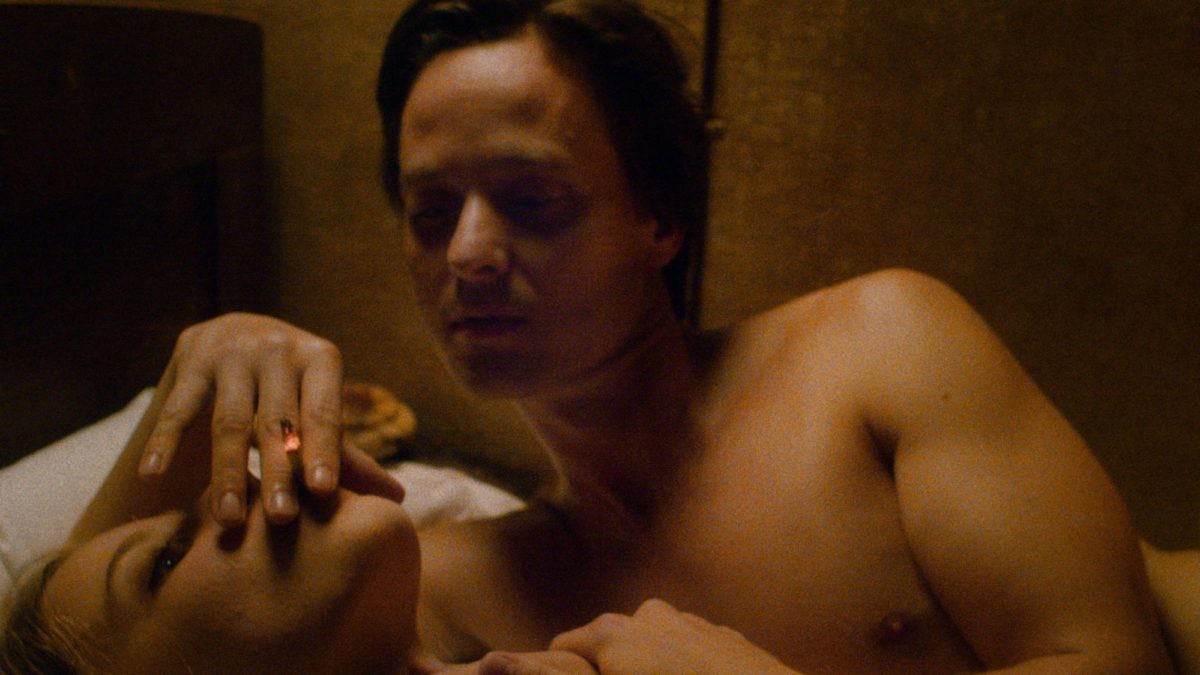
One of the major films premiering at last year’s Berlinale, Dominik Graf’s Fabian: Going to the Dogs is now arriving this month courtesy Kino Lorber. Set in 1931 Berlin, this three-hour drama follows a cigarette-ad man who falls in love with a burgeoning actress in pre-Nazi Germany. Naming it one of his favorite films of 2021, C.J. Prince said, “For a good while, Graf’s film gets drunk on the optimism of up and comers like Fabian, his lover, and their friends, but given the setting of post-WWI Germany we all know how this story ends. Adapted from Erich Kästner’s 1931 novel (which was censored at the time), Fabian sets itself up as a tale about a moralist unable to keep up with the decline of the Weimar Republic. Graf takes that story and turns it into a glorious celebration of idealism before transforming his film into a tragedy of a generation at the mercy of the world to come.”
4. Friends and Strangers (James Vaughan; Feb. 25 in theaters and Virtual Cinemas)

One of the most dryly amusing films I saw on the festival circuit last year was James Vaughan’s feature debut Friends and Strangers. As Leonardo Goi said in his Rotterdam review, “Nothing happens in James Vaughan’s Friends and Strangers in the same way that nothing happens in the films of Hong Sangsoo. The people navigating this entrancing debut feature (a lively pantheon of Australian twenty-somethings plus the occasional grownup proper) meet and talk; couples come together and drift apart; plans are shared and swiftly abandoned. But even a non-event can have its own sense of happening, and even a maze of chance encounters can reveal its own intelligent design. Populated by young adults fumbling after a coherent identity, Friends and Strangers behaves like them. It is a film of detours, digressions, and everyday surrealism––one that draws its unsettling allure from the angst that comes when you realize the path you’ve walked along isn’t paved anymore, and the future you’re venturing into will be entirely your own making.”
3. Jackass Forever (Jeff Tremaine; Feb. 4 in theaters)
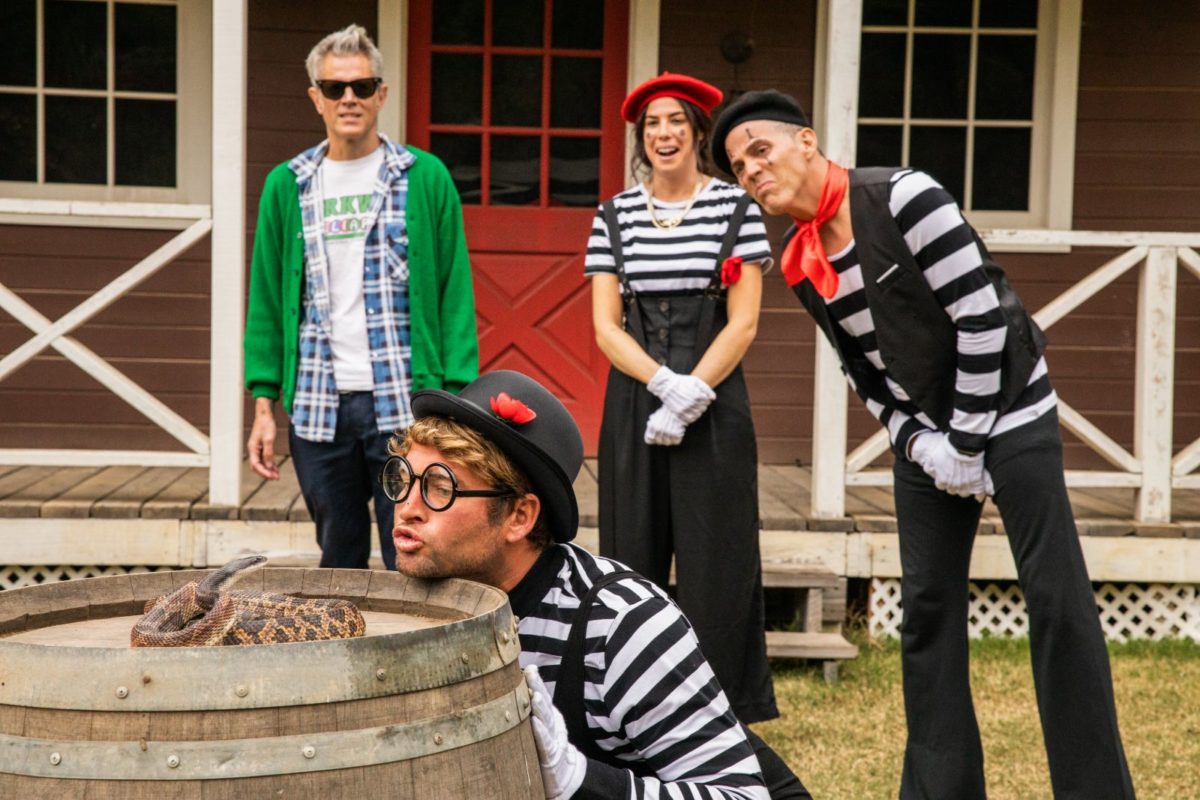
While the pandemic caused the delay of Jackass Forever last fall, Paramount is finally unleashing the long-awaited sequel this week. After Bad Trip, which Jeff Tremaine produced, landed on our top 50 films of last year, he’s back in the director’s chair and Johnny Knoxville, Steve-O, Chris Pontius, Dave England, Wee Man, Danger Ehren, Preston Lacy, and more all make their return. We expect a hilarious, even wistful reunion as Knoxville and crew reckon with the limits of our mortal bodies.
2. jeen-yuhs: A Kanye Trilogy (Coodie & Chike; Feb. 16, Feb. 23 & March 2 on Netflix)
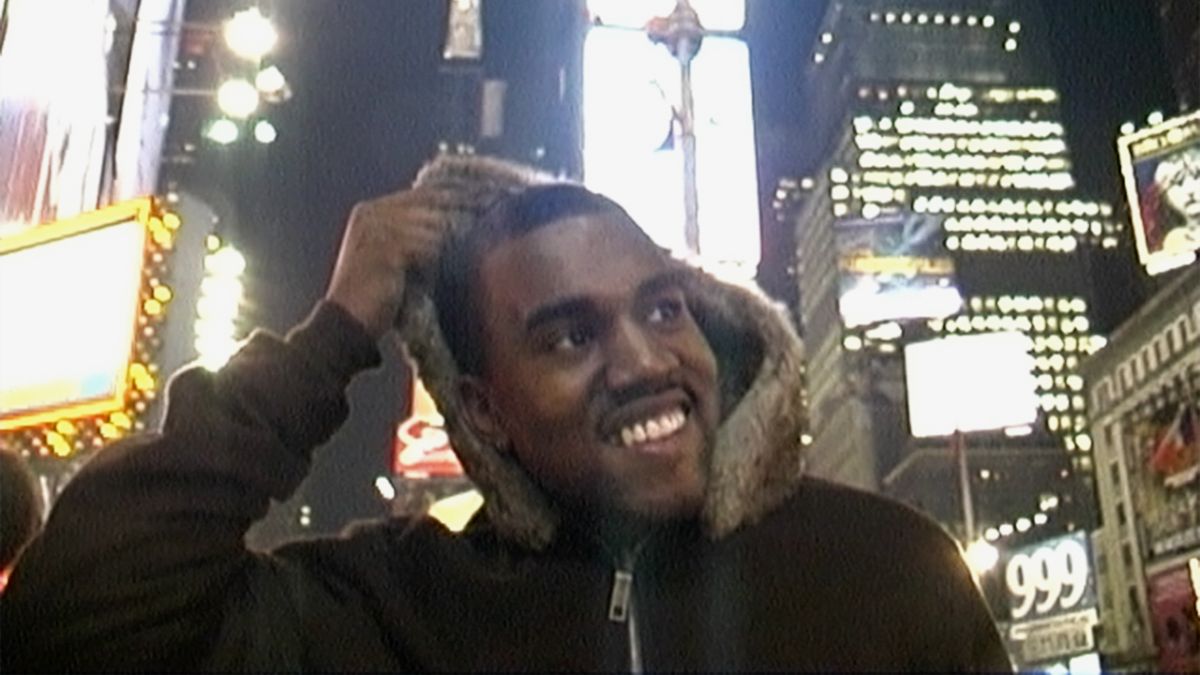
There’s no denying the artistic genius of Kanye West, and for anyone who had The College Dropout on repeat, this three-part epic will likely be the cinematic event of the spring. Directors Coodie & Chike—who filmed the artist for around two decades, well before he ever signed to a label––bring a wealth of personal insight to his rise. While I’ve only seen the first “act” thus far, courtesy Sundance, it’s a treasure trove of behind-the-scenes bits, most notably a sequence wherein West tries getting busy marketing employees at Roc-A-Fella Records to listen to “All Falls Down,” going from desk to desk before eventually giving up.
1. The Worst Person in the World (Joachim Trier; Feb. 4 in theaters)
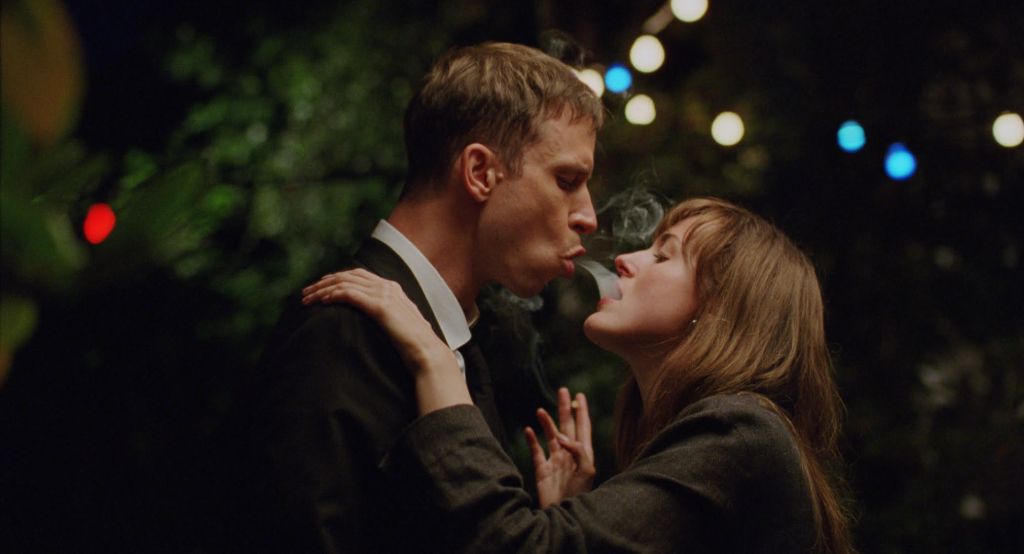
As Hollywood relegates the rom-com to cheaply made Netflix productions, leave it to Joachim Trier to reinvent this genre with an immense deal of warmth and inventiveness. Plus a requisite streak of despair. Led by Renate Reinsve in a breakthrough performance for the ages, The Worst Person in the World charts her character’s wayward romantic adventures through 12 chapters, a prologue, and an epilogue. Far from the potentially cumbersome experience such structure suggests, Trier exudes a wistful, charming vision through each section, from an endlessly endearing meet-cute all the way to a devastating, relatable view of how one’s daily obsessions can end up seeming trivial with a new perspective on life. It’s a lovely, magical movie, one that reaffirms the promise Trier showed in his first few features.
Honorable Mentions
- The Monopoly of Violence (Feb. 1)
- Madalena (Feb. 3)
- Ballad of a White Cow (Feb. 10
- Catch the Fair One (Feb. 11)
- Cosmic Dawn (Feb. 11)
- For Lucio (Feb. 15)
- A Banquet (Feb. 18)
- The Cursed (Feb. 18)
- The Long Walk (Feb. 18)
- Mothering Sunday (Feb. 25)
- Servants (Feb. 25)
